What options are available to replace missing teeth?…we basically have four choices when we lose a tooth:
- Do nothing
- Replace the tooth/teeth with a denture
- Replace the tooth/teeth with a fixed bridge
- Replace the tooth/teeth with an implant(s)
1. Doing Nothing
Not replacing a missing tooth is usually not the best option in the long term. I have honestly told many of my patients that you can lose one, two or three or more teeth and still be able to chew reasonably well…we simply adapt and move the food to other areas of the mouth. However in the long term teeth shift, overerupt and it can affect the entire “bite”. Also the remaining teeth can get over stressed and then they either break, become loose or begin to shift. Additionally, the bone in the area of the missing tooth begins to shrink or atrophy due to lack of use and stimulation-much like our muscles shrink when we don’t exercise.
None of this happens overnight but after several years of missing we start to see many of these things happening. Unfortunately by the time people realize it or they are told what is happening it is often “too late’ and it becomes a much bigger and more expensive problem to fix.
Sometimes we don’t have a choice, often for financial reasons. And at other times the tooth is so badly broken, decayed or infected that truly, the best treatment is to take the tooth out. Just remember to ask your dentist what the long term implications are for losing that particular tooth, and what options you will have in the future for replacing the tooth.
2. Replace The Tooth/Teeth With A Denture
Dentures are removable replacements for your natural teeth and gums. Essentially there are two categories called partial and complete (full) dentures. Partial dentures are made when a person still has some teeth in the arch, and they can replace from one to several teeth. Complete or full dentures are made when the entire arch (either upper or lower jaw) is missing all of the teeth.
Both types of dentures are made from either dental acrylic (a type of plastic) or a combination of acrylic and metal (usually a chromium cobalt alloy). There are pros and cons with each but that is too lengthy a topic to cover here…I’ll leave that for a future blog post.
Dentures are generally the poorest quality of tooth replacement. I liken them to a false or prosthetic arm….it may look like an arm but does not function like one and is a poor substitute for the real thing. Dentures are not much different. No doubt a denture is usually better than nothing at all, but they are fraught with problems.
Some of the most common problems with dentures are that:
- They tend to move in the mouth, especially while eating and/or talking
- They collect and trap food which can lead to gums problems, decay and further tooth loss
- They affect ones’ sense of taste and texture of foods-many of my patients have said that they either can no longer taste their food or have lost the enjoyment of foods because the “taste has been altered”
- They can be uncomfortable to eat with especially as they move and/or get food caught underneath
- Some people cannot tolerate them at all because they find it causes them to gag
- The additional thickness and foreignness of the denture can make it difficult to speak clearly
- The bone underneath the denture continues to atrophy and shrink-this becomes a greater problem affecting the stability and looseness of the denture the longer the teeth ahve been missing
- As the bone atrophies the denture can begin to put pressure on critical structures in the mouth such as muscle attachments and nerves, making them very uncomfortable to eat with
- Many people with denture avoid certain foods because they are just too difficult or painful to eat, such as raw foods, chewy or sticky foods and anything hard
- A person’s bite force and ability to ‘cut through foods” is decreased. Studies have shown that people with denture just don’t chew their food properly and swallow larger bits of food. Not only does this diminish one’s enjoyment of food, it also puts a greater burden on the digestive system.
I have many anecdotal stories from my patients related to the problems of dentures, but this one was told to me just last month. Although everyone’s experience is a little different, I think it sums up the above problems very well. This gentleman had lost about one half of his teeth over several years and his few remaining molars were now loose, tipped over and ready to fall out as well. I have paraphrased his words:
“I finally decided to come in to see you about getting some teeth. I have not been able to wear a (partial) denture for years because they have never been comfortable and they have just been a waste of money.
I really like to eat corn and my favourite is corn on the cob. But lately I’ve realized I can’t digest it and need to do something to fix my teeth. For a long time I haven’t been able to eat corn on the cob with these teeth but I was able to overcome that problem because I always used a knife to cut the corn off the cob. But a few months ago I noticed that whenever I ate corn, after I had gone to the washroom the pieces were still there totally intact! It was like I hadn’t chewed it at all. I thought…I really like corn but if I’m not chewing it and it is simply passing through me I can’t be getting much nutrition out of it. There’s no point in buying it or eating it….what a waste. And if that is what is happening with corn, what else am I not chewing properly and just passing through my body. So that’s when I decided to come and see you to find out what can I do to replace my missing teeth.”
Replace The Tooth/Teeth With A Fixed Bridge
Bridges are methods to replace teeth whereby the teeth are non removable…they are permanent. Prior to implants, bridges were the very best method of replacing a missing tooth and depending on the particular circumstances a bridge may still be the best option for a particular patient.
In the past bridges were commonly made out of a combination of a gold alloy with porcelain placed on top of the alloy. The metal is used for strength while the porcelain is placed for aesthetic reasons. In the past 10-15 years there have been huge advances in the strength of different porcelains and under certain circumstances we can also make all ceramic bridges that do not have any metal whatsoever.
A bridge requires a solid and healthy tooth to attach on either side of the empty space. The most common bridge involves placing a crown on a tooth in front of the space and a crown on the tooth in behind the space. The false tooth (pontic) is attached to the crowns on either side. Although the teeth are all joined together they are made to look like individual teeth.
Some bridges can be made that do not require placing crowns on the adjacent teeth. In those cases the bridge is bonded (glued) into place or a small inlay (filling) preparation is placed instead of a crown, to hold the false tooth in place. Although these are much more conservative methods to place a bridge they are not as strong and therefore we have to be selective where they are used.
There are several advantages to bridges compared to dentures.
- They are permanent so you do not have to remove them
- You can chew very well and efficiently with a bridge compare to a denture
- It is similar in size and shape to our natural teeth so it does not feel big like a denture
- Those people who have a strong gag reflex and cannot tolerate dentures are able to tolerate bridges as they are essentially the same size and shape as natural teeth.
Replace The Tooth/Teeth With (An) Implant(s)
What Are Dental Implants?
Today the most common implants are essentially the equivalent of an artificial root made of either titanium or zirconium. In shape they look more like a cylinder or screw, but they are all placed into the bone where the original tooth used to be. The unique properties of these two materials is that if they are placed next to bone and allowed to heal “undisturbed” then bone will grow around and next to it. The implant then become attached (osseointegrated) to your jawbone and it is very solid…much more so than your natural teeth.
With this solid implant we can attach other “parts” to it such that they can hold a denture in place or even be used to cement or screw permanent teeth into place. Although implants are more solid than natural teeth, it is still critically important to treatment plan, design and engineer all the steps with dental implants. That includes determining if there is adequate bone volume, where and how many implants are needed and where and what type of teeth will be placed for proper function, health, esthetics and long term success.
Dental implants can be used to replace a single tooth, several teeth or an entire arch of teeth. Today’s “modern day” implants have been around since the 1960’s, although there have been many changes, improvements and developments since they first became available. There is no doubt in my mind that, in most cases, a dental implant is the very best method of replacing missing teeth. Implants provide the next best thing compare to our natural teeth. The long term success rate of implants and the (much lower) rate of failure and complications of dental implants compared to traditional bridges and dentures is far greater especially in the long term.
However, the most important step for long term success is to begin with a proper diagnosis and treatment plan that will ensure long term success. I have been placing and restoring implants for 25 years as of today and I still see many of my first patients still functioning very well with their implants and teeth. I have also had other patients come to see me as their dentists have retired and some of those patients had implants place 30-37 years ago….also still functioning perfectly well.
Second is to find an implant dentist who can confidently provide you with the treatment both prosthetically and surgically. In some cases the same dentist may be able to provide both phases of treatment but it is also not uncommon for patients to see one dentist for the surgical phase and another dentist for the prosthetic (teeth) phase.
Dental implants can be a big decision for many people. I tell my patients to take their time, consider their options, ask questions and certainly ask the dentist(s) to share similar cases they have done in the past.
One word of caution regarding dental implants.
Although dental implants have been around for many years the number of methods of approaching and treating a given situation is much greater for dental implants than traditional bridges or dentures. As the level of training and education among implant dentists improves this will likely become less, but even today I see a wide variation of professional opinions, experience levels and methods of approach. In some cases two different approaches can be equally good, but that is not always the case. I have been told by some patients that a previous dentist said they didn’t have enough bone when in my mind (and hands) there was more than enough bone to place an implant. I have been told by patients who do not have adequate bone that they have no other option besides a denture, yet there were several possibilities to build up and increase the volume of bone and to subsequently place implants. I have also had patients opt for a treatment involving fewer implants (probably because it was less expensive) only to find out that it was “under engineered” and the implants and teeth begin to fail in just a few years. I have also had patients come in who have spent a considerable amount of money, only to have things fail almost immediately and be told that “there is no guarantee.”
If you have any doubt as to what is being treatment planned, what the success is expected to be, what is or isn’t “guaranteed”….go for a second opinion. I tell my patients deciding to have dental implants is similar to making any big decision or purchase….we often check out a few options before making a final decision. I never feel “ruffled” if a patient tells me they want a second opinion before making a final decision…in fact I encourage it.

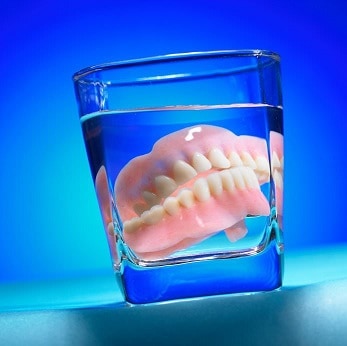
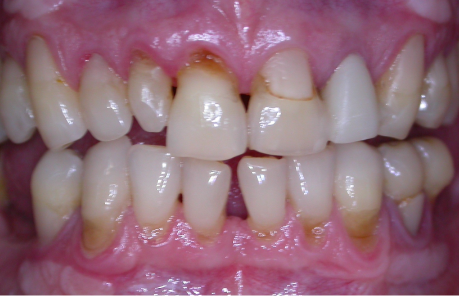
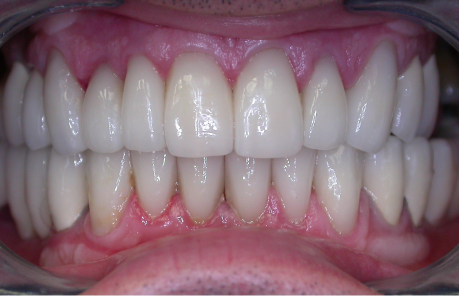
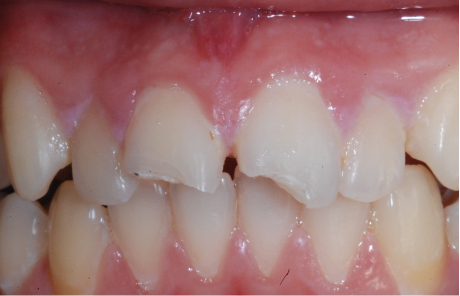
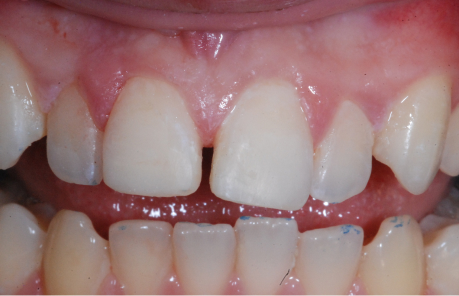
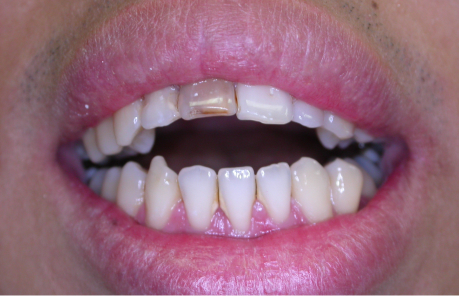
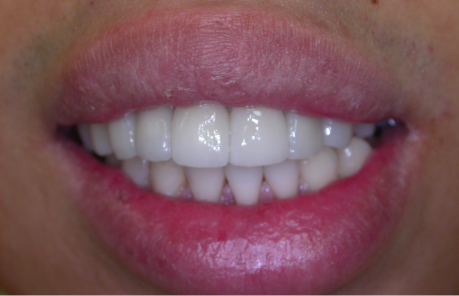
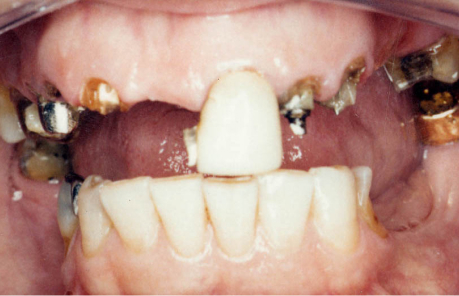
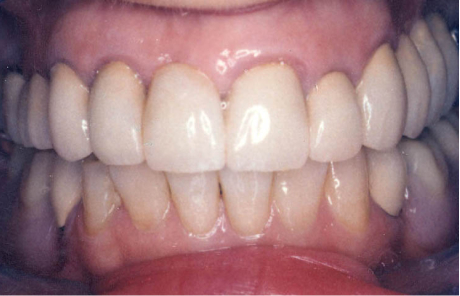
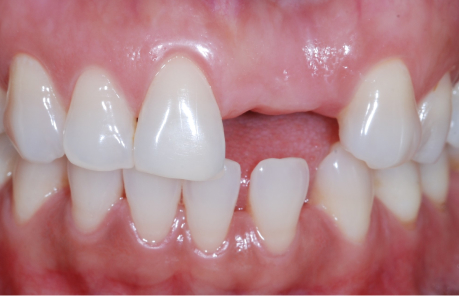
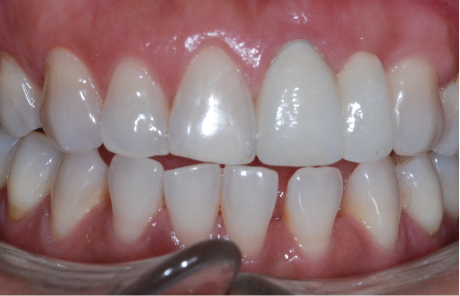

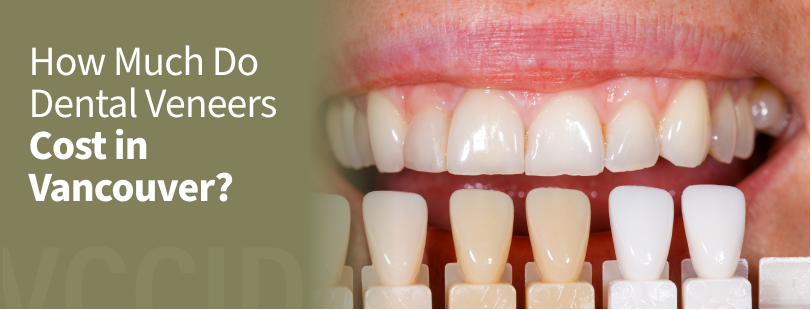
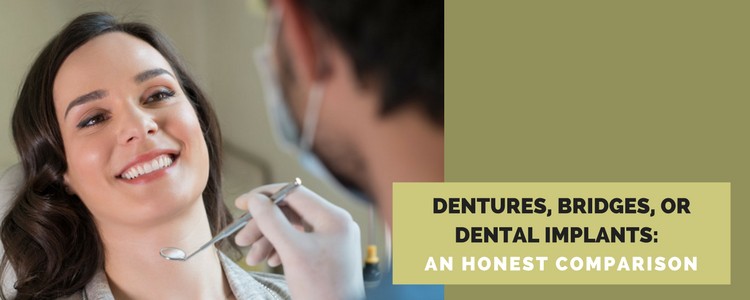



18 thoughts on “Top 10 Reasons Why Dentures Aren’t The Best Replacement For Natural Teeth (And What To Do About It)”
Great article
My wife had none augmentation both sides, skin grafting one side and 3 implants. All 3 failed and were removed.
Do you have any recommendations
Jim Geraghty
[email protected]
9053389177
Hi Jim,
It is difficult to say what caused the failure without more information. If the implants failed to integrate, in other words they failed before the final teeth were made, then I would say it had something to do with the surgery and or initial healing. There are at least 30+ different possibilities that vary from surgical technique, the quality of bone at the site, pressure on the implants during healing as well as a myriad of health issues that can affect healing. If the teeth were put in place but failed shortly thereafter (within one to two years) it is possible that the implants did not fully integrate and there was too much pressure on the implants (under engineered), heavy function etc.
Unfortunately your wife would have to start all over, however it does not necessarily mean that her treatment will fail a second time. Many years ago, I saw a patient who had five implants placed in her lower jaw and they all failed within the first year. She had it done in another country so I could not get any information why they failed, and she did have very little bone to begin with. Nevertheless, I took all the usual precautions and was able to provide her with four implants and final prosthetics. It has now been 6 years since I did the work and I see her every couple years when she comes to Vancouver, and so far everything continues to work well….so there is always hope.
Sincerely,
Dr Balogh
Whats the best option for three lower jaw missing tooth which have been missing from more than 10 years and no procedure has been done yet
I had all my teeth removed a week ago. The immediate dentures are too big leaving knots sores and bumps in my already sore mouth. The Dr who made the dentures keeps telling me to wear them but they hurt so much. I cannot afford implants right now. What can I do???
Hello Maranda: Although dentures can be loose and not the most comfortable,you should be able to get it adjusted and or relined so that you do not have sores in your mouth. Definitely go back to see your dentist if all else fails see another dentist or denturist for a second opinion.
Sincerely, Dr Balogh
Hi – I have recently had the whole top set of teeth removed as the dentist said it would be better than wait for them to fall out 1 by 1 and have no bone to put implants in. I had already lost 3 and the rest were wobbly due to gum desease. A year on and I now have 4 implants attached to a full set of dentures. I can’t say they are fully compfortable nor aesthetically pleasing (as promised…). Plus one of the screw tops keeps coming loose – last week causing the whole denture to break in half. I can still feel movement and have resorted to tightening it by hand. By mistake I started unscrewing it, and could smell a horrible metal/rotten smell coming out. This happens when the dentist replaces the screw caps as well and she said it was nothing to worry about – old blood…I currently can feel movement and I thought the implants would stop that. Please advise
Hello Rachel: The odour is usually due to plaque/bacteria that is collecting just under the gum tissue and in some cases at the level of the abutment-implant connection. It is not uncommon with many implant designs and if it not excessive it is not necessarily a big problem long term….just not pleasant. On the other hand if there is a lot of plaque under the denture and/or there is inflammation associated with this, then it will not be healthy or good in the long term. Regarding the breakage and loosening, it may be that something is not fitting 100% passively, but without seeing the teeth myself I cannot say for sure. Regarding the movement I am not sure if the movement is because the teeth do not fit well or the limitations of the clips/implants. Four implants is not very “strong” particularly in the upper jaw where the bone is not very dense. Therefore the purpose of (only) four implants is mainly to keep the denture from falling out. If we need to make the teeth more stable and secure (less movement) then at the very least these four implants should be splinted. We have to be careful with only four implants in soft bone that the implants are not overloaded…if that occurs then bone loss may occur and this could lead to loss of an implant(s). Normally my preference for upper jaws is to placer 6 implants and then to splint them…this gives a very solid and strong foundation to make an uppers set of teeth (either fixed or removable) that is very secure and (in my opinion) better for long term success.
Sincerely,
Dr Balogh
Hello Dr. Balogh – Your blog is very informative. Thanks!
I have had 2 implants and a bridge to handle 4 missing lower front teeth (Incisors) about 8 yrs. ago. They are functioning perfectly. No problems.
However, now, I have developed additional loose teeth (#7-10). So I am considering 2 implants and a bridge for them.
However, I have another problem. There is another tooth that is really loose – lower left pre-molar (#21). A dental surgeon told me that there 2 problems here: (1) there is bone loss and not enough for an implant, (2) a more SERIOUS one – there are nerves that run near it and so will be problematic for Implant placement. These seem to rule out a 1 tooth implant there. My dentist tells me a partial denture may be the best option.
Is there a remedy here? can an implant work here. How about a bridge to the previous implant bridge. Any other options?
Thanks.
Hello Ashok:
Your dentist is probably correct with regards to placing an implant. however, my question would be if grafting the site at the time of extraction and/or afterwards would create enough bone to place an implant. The nerve is often close but whether an implant can be placed is best determine by a ct scan once the site has healed. Cantilevering a false tooth off the anterior bridge is probably not the best as it will tend to stress the implant or the bridge.
Sincerely,
dr Balogh
What happens if the dental implants fail and you are left with the only option to get dentures. Could the holes made for the implants damage the bones of the gums so dentures will no longer fit without bone grafts? I understand that bone grafts can be very expensive and may not be covered by insurance either. What is the percentage of implant failure. What if the implants have to be removed after a hole has been made? Will the holes need to be filled or do they fill in on their own?
The holes will fill in much like a tooth extraction. However if an implant fails and there is a lot of infection around it, the resulting bone loss from the infection may create an issue whereby the bone volume is not fully restored. You should always be able to get a denture as a worst case scenario…the problem with dentures is that if there is minimal bony ridge then the dentures tend to move, collect food and be uncomfortable for eating.
Sincerely
Dr Balogh
No one has mentioned the cost. I have worn dentures for three years and am in the process of having new ones made since my gums have shrunk considerably. The dentist said the best option would be to have an “over denture” for my lower, connected to 2 implants. The cost – $35,000!!! For TWO implants. Who has that kind of money. I’m live on disability SSDI and my parents paid for my original surgery/dentures as well as the current ones I’m having made. Surgery for my four front teeth, top & bottom (had the back teeth extracted one at a time at a free clinic), the dentures, and all related expenses (x-rays, etc.) was approximately $6,800. Cost of dentures I’m having made is approximately $2,600. Were it not for my parents, I would still have diseased teeth/gums.
Hello Lyn:
I don’t know where you live but that does sound expensive for two implants and a denture…that seems more like the cost of 5-6 implants and permanent fixed teeth…is it possible there was some miscommunication in their estimate and treatment plan?
Sincerely
Dr Balogh
My wife is currently going through a terrible time with her dentures. Due to losing all her molars and after several years wearing bridges , the last one broke on Christmas day 2018, she decided to just pull the trigger and have a full denture done in February. Her dentist who would handle the dentures referred her to an oral surgeon for the extractions. She had her immediate dentures made and then on Feb 5 had the extraction done. She went through what we were told is the “usual” process of healing, where she was told to wear the immediate s right away though the OS and DM differed on whether she should wear them at night.
Four weeks and several adjustments later, the immediate dentures were not fitting well and it seemed she had sharp ridges along her gumline at the sockets. These caused more and more pain and after about 5 weeks she could not wear the dentures at all and the DMD referred her back to the DDS who said she needed to have the bone around the sockets “planed”. Additionally he stated it appeared there was a non erupted wisdom tooth that needed to be removed. I pointed out that was seen in the initial xrays and he was supposed to remove it when the other teeth were extracted. This was the first point I suspected the DDS may not be very good. Subsequent to the “planing” my wife was again in extreme pain and could not wear her dentures at all. A week after the second procedure she went back to have her stitches removed by the DDS before he went on vacation. The day after , and the same day he went on vacation, she noticed she still had what appeared to be stitches in 2 locations. She went back to the DDS’s office and had to have the front desk assistant (yep you read that right) remove the missed stitches.
Another 4 weeks of healing followed during which she could not wear her dentures. When she was finally able to put them in without sever pain, it was apparent that not only did they no longer fit, because the gums had changed, but we noticed the centerline of her front teeth were not aligned with the center of her lips. The dentist agreed to have the dentures remade.
4 Weeks later, and after receiving what we assume are the “permanent dentures” , my wife is still not able to wear them more than 4 hours at a time without re-gluing them in. Additionally she is unable to eat anything harder than that of a soft banana. This after having been told at the beginning she should be able to eat most of her favorite foods.
Currently the 4 on 4 procedure is financially out of the question, however, does this all seem like just a worst case scenario from what I am describing? I am strongly considering going to another OS or Cosmetic dentist to get a second opinion and asking for our money back.
Hello David: A lot of what you described is not unusual.Initial discomfort from the extractions, some sharp bone spicules, gum shrinkage and the need to the reline can and do happen…not in every case and usually not to such an apparent excessive extent…but every person/mouth is different.
Regarding her inability to bite and eat comfortably now the at the gums have shrunk and healed is not so unusual…it depends on the fit of the dentures as well as the amount of bony ridge remaining, the bite etc. It is good the dentist agreed to make a new denture…that may fix a lot of issues but impossible to truly say without seeing the intra oral condition.
Sincerely
Dr Balogh
What factors can cause tooth implant to medical necessity
hello Tony:
In my opinion it is all about function and being able to provide a person with teeth that they can function with and eat a properly balanced diet.
Sincerely
Dr Balogh